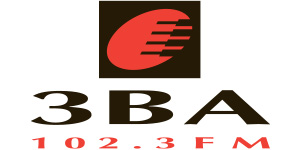Australia is about to shake up its automotive scene, potentially saying goodbye to fan-favourite cars like the Toyota HiLux and the Ford Ranger.
The reason for this transformation is new laws that are set to be passed by the Federal Government mandating strict emission standards for petrol and diesel-powered vehicles.
These regulations, aligned with the ‘Euro 6d’ standards, are set to take effect in 2025, accompanied by improvements in the quality of locally sold petrol. The goal is to bring Australia in line with the emission standards already adopted by Europe.
With this legislative shift, several popular models, from passenger cars and SUVs to utes and vans, face the risk of extinction from Australian showrooms unless they can meet the demanding Euro 6d standards.
The current emissions standards in Australia, which have been in place since 2009, fall short of those adopted in Europe a decade ago, and Australia’s petrol quality ranks as one of the dirtiest among developed nations.
The Euro 6d standards, which were implemented in Europe in 2021, set a benchmark that rivals or surpasses the emission protocols enforced in other developed markets. Australia’s adaptation of these stringent rules will impact new cars, SUVs, and light commercial vehicles entering the market from December 2025. However, these standards will apply universally to all models, regardless of their launch date, from 2028.
While these new regulations will undoubtedly push automakers to introduce cleaner vehicles to the Australian market, they are separate from a potentially more rigorous Fuel Efficiency Standard being considered by the Federal Government.
Supporters of electric vehicles argue that such a mandate would incentivize car manufacturers to introduce more zero-emission vehicles, lowering the overall emissions average. On the other hand, opponents argue that this might leave everyday Aussies who rely on their utes and four-wheel-drives without viable alternatives, especially if they are not ready or able to transition to electric vehicles.
What’s alarming is that over half of the new petrol and diesel-powered vehicles available in Australia are currently certified only to the minimum emissions standard, Euro 5. This includes popular models like the Toyota Corolla hybrid and leading utes such as the Toyota HiLux, Ford Ranger, and Isuzu D-Max. Even iconic four-wheel drives like the Toyota LandCruiser 300 Series and Jeep Wrangler fall within this category.
The Australian car industry’s failure to meet voluntary emissions targets over the past three years has compounded concerns. This voluntary framework, which is less strict than overseas mandates, has worsened emissions performance, particularly with the surge in sales of utes, 4WDs, and American pick-ups.
The stringent guidelines dictate that cars must emit less than 162 grams of carbon dioxide per kilometre to pass. Vehicles sold recently, including the immensely popular Toyota HiLux, would now fail to meet these updated emission rules.
These measures aim to protect Australians from the harmful effects of exhaust pollutants, which were responsible for over 1700 deaths locally in 2015.








